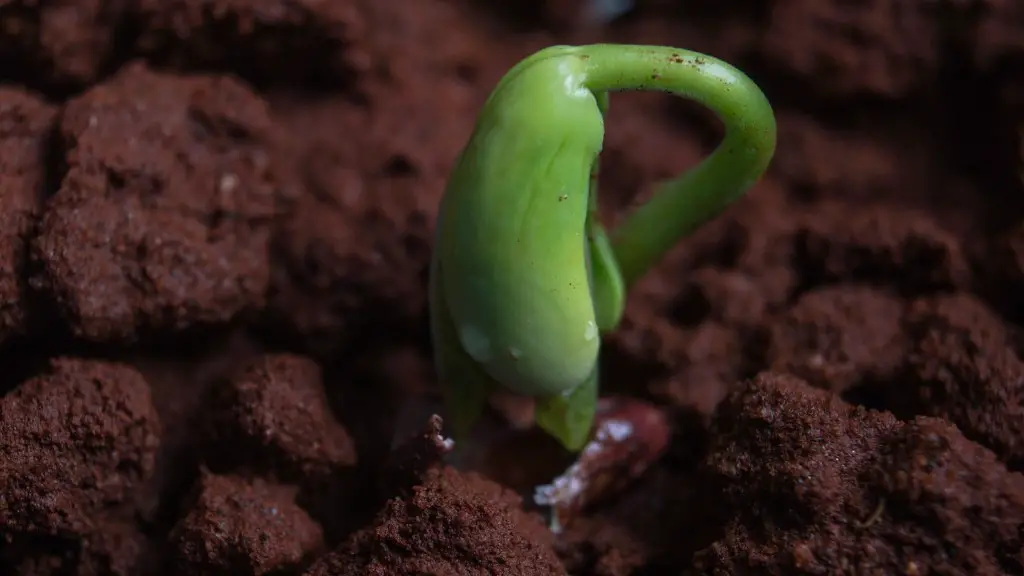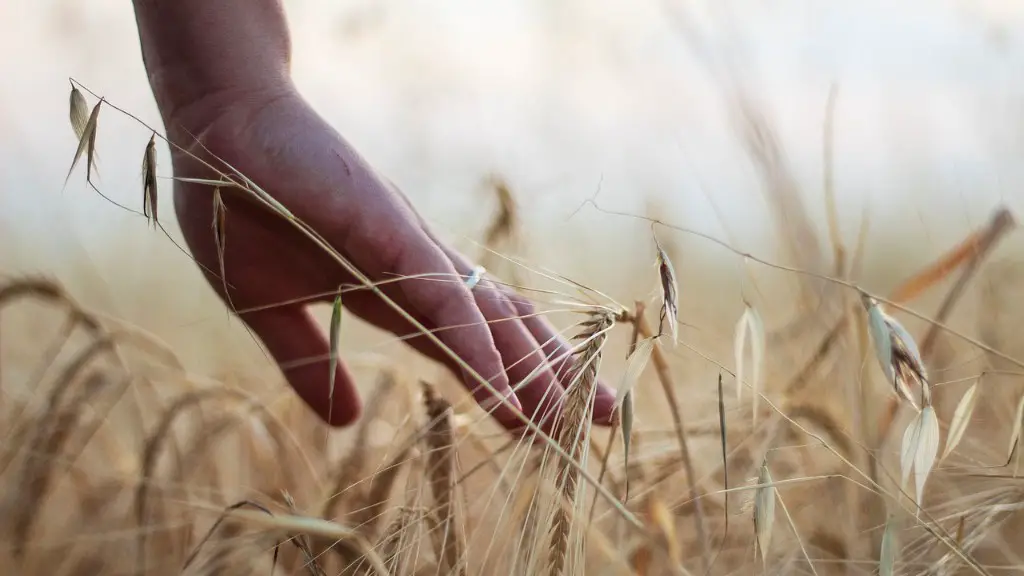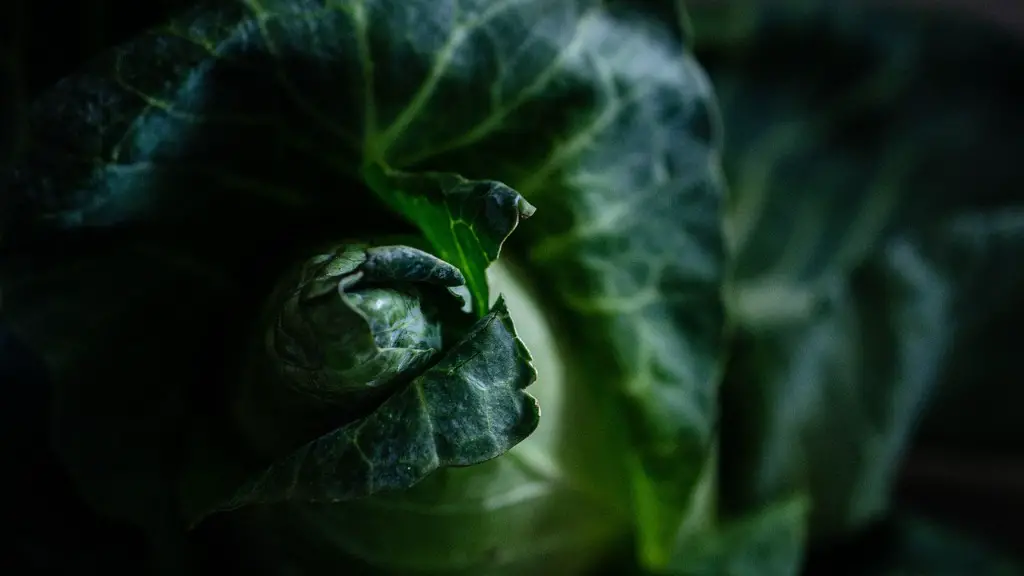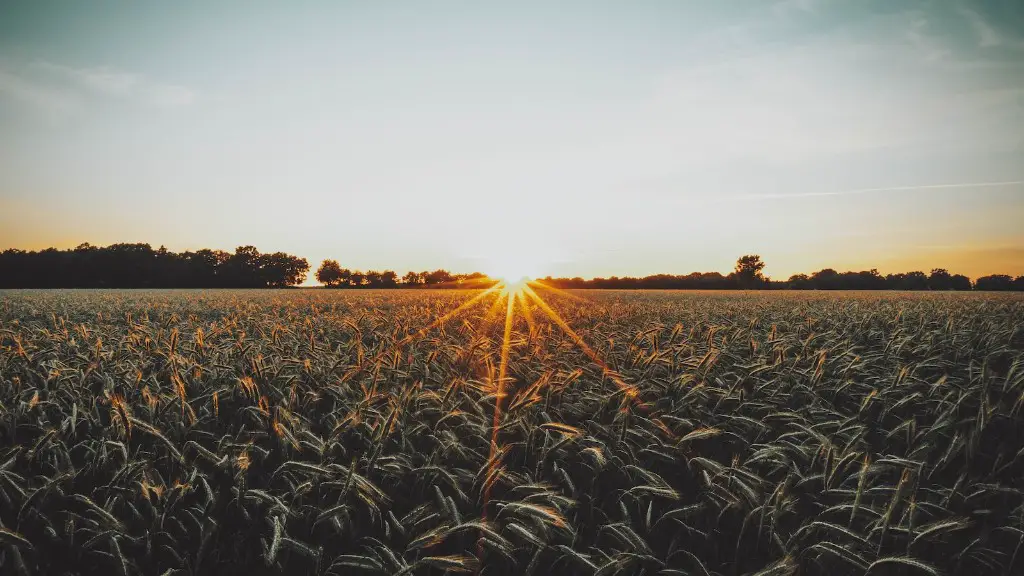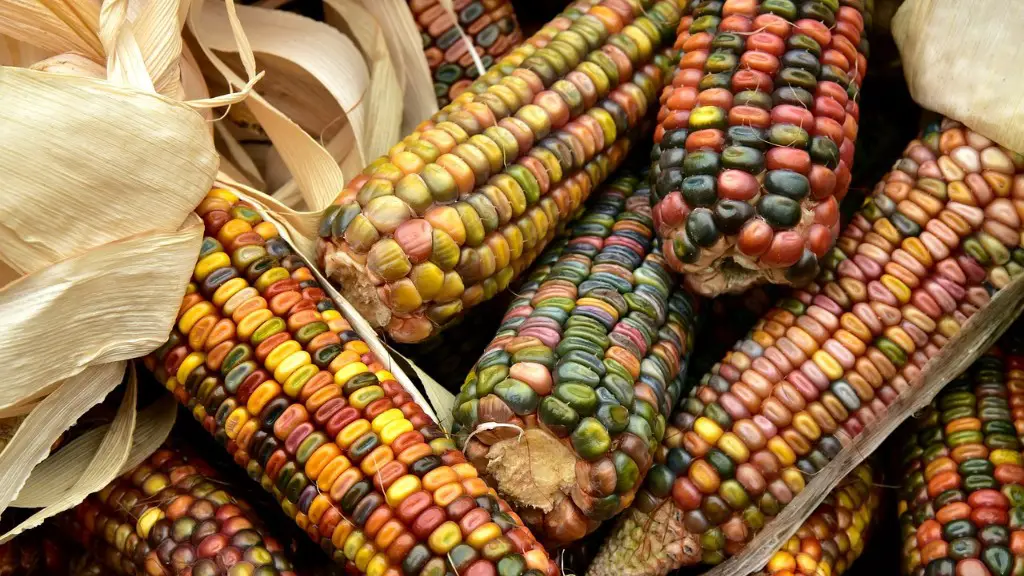Organic agriculture is a holistic approach to sustainable production that emphasizes the conservation of natural resources and biodiversity. It is based on principles such as crop rotation, composting, soil health, animal husbandry and pest management. The basic principles of organic agriculture can be broken down into three main categories: environmental considerations, human health considerations and soil health considerations.
Environmental Considerations
Organic farming works to minimize soil erosion and water pollution by using natural methods of production rather than chemical fertilizers. Natural practices include mulching and tillage that help conserve soil structure and maximize soil fertility. It also includes the use of cover crops to reduce the effects of soil erosion, windbreaks to reduce wind erosion, crop rotation to increase soil fertility, and water conservation to reduce the need for irrigation.
Organic farmers also use environmentally friendly pest management techniques such as companion planting, trap cropping, habitat manipulation, and predator surveys. These techniques have the added benefit of promoting beneficial insect species and reducing the need for pesticides. With this approach, organic farmers seek to improve the environment for future generations.
Organic farmers also strive to promote sustainable agricultural practices that optimize production while minimizing environmental impact. This can involve reducing the use of synthetic fertilizers and pest control products, as well as conserving energy and water usage.
Human Health Considerations
In addition to environmental considerations, organic agriculture also places a strong emphasis on human health. Organic farmers use fewer synthetic fertilizers and pesticides, which are potentially damaging when incorrectly used. Organic farming also eliminates the need for genetic engineering and growth hormones, which have been linked to health problems in humans and animals.
Furthermore, organic farmers employ natural practices to promote animal welfare. This includes providing a balanced diet, providing sufficient shelter and access to pasture, and using preventative practices such as vaccinations and preventive care. Organic farming also seeks to promote a more humane relationship between humans and animals.
Additionally, organic farming eliminates the use of antibiotics and growth hormones, which have been linked to increased health risks in humans and animals. As a result, organic farmers are more mindful of their practices and the potential health risks that may come with conventional farming.
Soil Health Considerations
Organic farming places a strong emphasis on soil health. Organic farmers use natural soil amendments such as manure, compost, and cover crops to maintain soil fertility and structure. They avoid the use of synthetic fertilizers, which can cause the soil to become too acidic or alkaline, reducing its ability to support plant growth. Organic farmers also promote soil conservation through practices such as crop rotation and cover cropping.
Organic farming also seeks to eliminate soil contamination and promote healthy soils. This includes minimizing soil erosion, minimizing the use of non-environmentally friendly tillage practices, maintaining adequate levels of organic matter, and promoting beneficial microbial communities. Healthy soils are essential for plant growth and can also help improve air and water quality.
Organic farming is a complex, holistic approach to farming that seeks to conserve natural resources and improve human and environmental health. By incorporating principles such as crop rotation, composting, soil health, animal husbandry and pest management, organic farmers are able to promote sustainable agriculture and maintain a more positive relationship with the environment.
Organic Production Systems
Organic farmers utilize certain production systems in order to support their goals of sustainable production. This includes production systems such as permaculture, agroecology, and integrated pest management. Permaculture is a system of agriculture that seeks to mimic natural ecosystems and promote sustainability. Agroecology is an ecological approach to farming that focuses on the interactions between plants, animals, and the environment. Integrated pest management is a pest control strategy that relies on natural predators and other nonchemical methods of pest control.
Organic farmers also utilize sustainable production methods that strive to minimize environmental impacts. This includes practices such as minimizing tillage, minimizing chemical inputs, minimizing water and energy usage, and promoting native crop varieties. These practices not only reduce negative environmental impacts, but also help ensure sufficient yields and improve the economic viability of organic farming operations.
Organic production systems are also designed to be more resource-efficient, taking into account resource availability and environmental costs. This includes practices such as energy conservation, water conservation, composting, and soil maintenance. These practices not only reduce environmental impacts, but also help ensure sufficient yields.
Organic Certification
Organic farmers must adhere to certain standards in order to receive certification. Organic certification is a process that verifies that the products produced by a farm meet the standards set by the organic certification body. The standards involve requirements such as using only organic inputs, avoiding the use of genetically modified organisms, and limiting the use of synthetic fertilizers and pesticides.
In order to receive organic certification, farmers must go through a rigorous inspection process. This process includes farm visits and inspections of production records, as well as inspections of products. Organic certification bodies may impose additional requirements such as providing specific soil analysis and proof of organic matter in the soil.
Organic certification is an important step in verifying that a farm is organic and helps protect organic producers from fraudulent practices. Organic certification also ensures that the organic products produced meet the highest standards of health and sustainability.
Organic Marketing
Organic farmers must also be able to market their products in order to be successful. Organic marketing involves the promotion of organic products to consumers, retailers, and wholesalers. Organic farmers must develop marketing strategies that focus on the benefits of organic production, such as health benefits, environmental benefits, and cost savings. Organic farmers must also be able to showcase their products so that customers can distinguish between organic and conventional products.
Organic farmers should also look for opportunities to collaborate with businesses and organizations that promote organic products. This can help increase their visibility and create more opportunities for sales. Organic farmers should also participate in trade shows and expos to showcase their products and services.
In addition to marketing, organic farmers must also be able to build relationships with retailers and wholesalers. This includes providing them with information on organic production and having a good understanding of their needs. Building relationships with retailers and wholesalers can also help organic farmers develop a loyal customer base.
Organic marketing is an essential part of organic farming and can help farmers increase their sales and reach a larger customer base. By developing effective marketing strategies, organic farmers can ensure the success of their organic farming operations.

